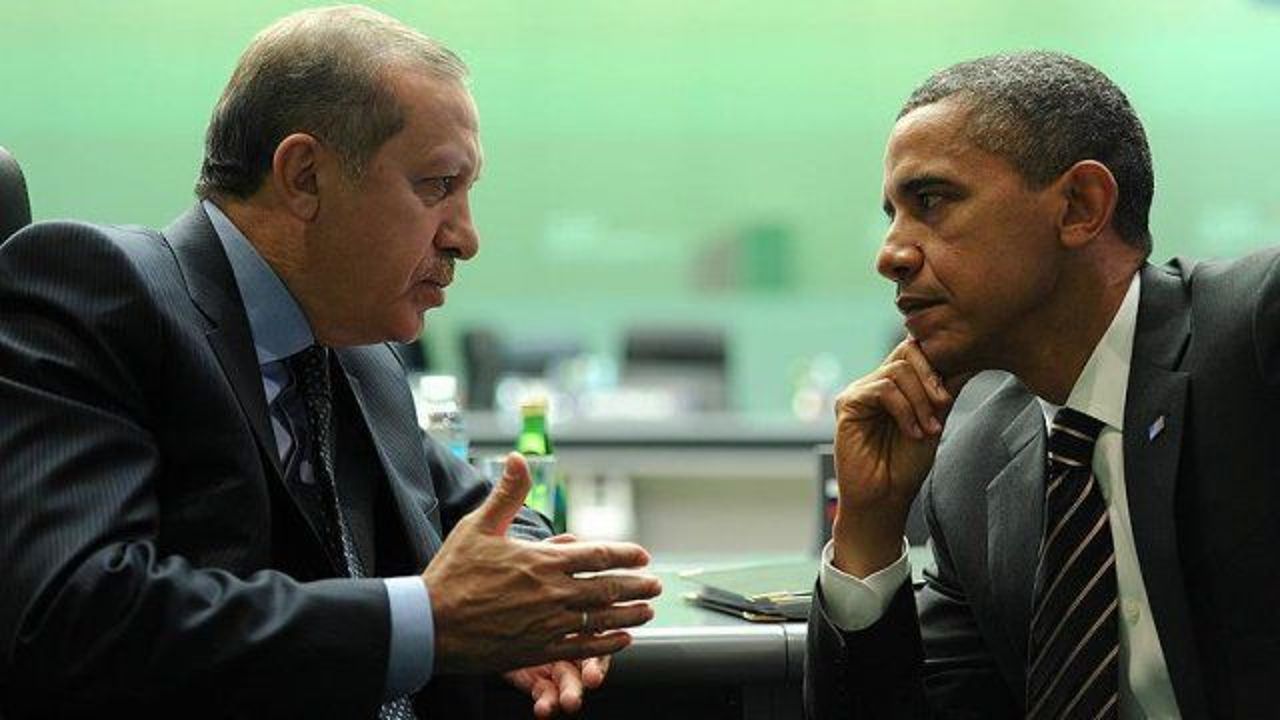President Erdogan, Obama discuss latest situation in Aleppo
President Recep Tayyip Erdogan said he discussed the current situation in Syria's Aleppo and Iraq with U.S. President Barack Obama on Thursday.

In remarks made during a press conference in Ankara with his Slovenian counterpart Borut Pahor, Erdogan said: "We had a long conversation with Obama. I told him about the evacuation problems in Aleppo and he asked how he could help."
The president said the massacre and oppression committed against the people of Aleppo was now out in the open in front of the whole world. "Having such a tragedy in the 21st century is a shame for humanity. If we want a solution in Syria, the current situation in Aleppo must be taken under control," Erdogan said.
He also said some 1,150 civilians, including injured people arrived in Syria’s Idlib city by Thursday evening.
"We are closely following the cease-fire process and we will continue to do so. Surely, the number [of trapped people in Aleppo] is not so small, but there are scores. I hope this [cease-fire] progress will not be interrupted again," he added.
According to an agreement between the Assad regime and Syrian opposition groups, civilians evacuated from eastern Aleppo will continue to head towards Idlib, which is located near the border with Turkey.
On Thursday, the first group of people evacuated from Aleppo reached the opposition-controlled safe zone in Syria, according to Turkish Deputy Prime Minister Veysi Kaynak.
The United Nations Security Council announced a closed meeting Friday -- called by France -- where the member states will discuss the evacuation efforts.
Violence escalated in Aleppo city on Monday when Syrian regime forces advanced into opposition-held parts of eastern parts of the city following a five-month siege and persistent aerial bombardment.
Around 80,000 civilians are believed to have been trapped in these areas.
The Russian-backed regime had been trying to reestablish control over parts of Aleppo captured four years ago by armed opposition groups.
Syria has been locked in a devastating civil war since early 2011 when the regime cracked down on pro-democracy protests – which had erupted as part of the Arab Spring uprisings – with unexpected ferocity.
Since then, hundreds of thousands of people are believed to have been killed by the conflict and millions more displaced.
Turkey - EU ties
Erdogan said other countries acted judiciously during the European Union General Affairs Council on Tuesday despite an attempt by Austria to block Turkey’s accession process.
The president thanked Slovenia for backing Turkey's EU membership process, but, he said, it is impossible for Turkey to accept the union's block on opening new chapters in the accession talks.
"A safe Europe without Turkey is highly unlikely," he said, adding that alienating Turkey from the EU would put peace and stability in the region at risk.
He said Turkey would use a backup plan if the EU did not send its promised aid for refugees in the country.
"We do not have to obey every decision the EU makes about us [Turkey]. Because Turkey has gained nothing from the EU," Erdogan said.
On Tuesday, several foreign ministers at a meeting in Brussels argued against Austria’s calls for a tough stance against Ankara.
Austria stood against Turkey’s membership negotiations and voted against the final declaration that did not use the term “freezing of Turkey’s accession process”.
The other 27 members on the council approved and announced that the group welcomed a deepening of EU-Turkey cooperation in key areas of joint interests and challenges, including migration, counterterrorism, energy, economy and trade.
The council also announced that no chapters have been opened since Chapter 33, or the Financial and budgetary provisions, was opened on June 30, and added that under these circumstances no new chapters could be considered for opening regarding Turkey’s ascension.
Turkey applied for EU membership in 1987 and accession talks began in 2005.
For his part, Slovenian president encouraged the EU-Turkey dialogue talks.
Pahor said: "I believe most of the EU does not want the trust deficit between Brussels and Ankara to reach a point where Turkey's European path gets suspended or even abandoned."
Anadolu Agency







